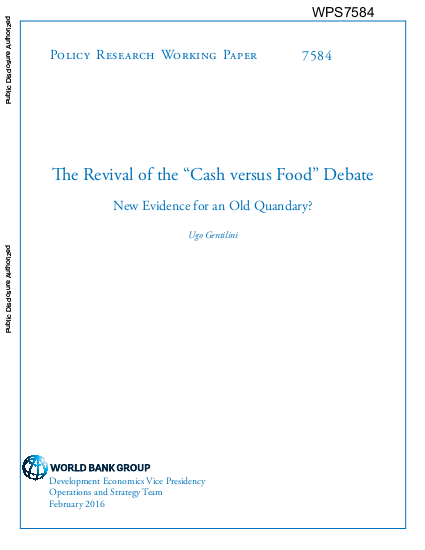
The longstanding "cash versus food" debate has received renewed attention in both research and practice. This paper reviews key issues shaping the debate and presents new evidence from randomized and quasi-experimental evaluations that deliberately compare cash and in-kind food transfers in ten developing counties. Findings show that relative effectiveness cannot be generalized: although some differences emerge in terms of food consumption and dietary diversity, average impacts tend to depend on context, specific objectives, and their measurement. Costs for cash transfers and vouchers tend to be significantly lower relative to in-kind food. Yet the consistency and robustness of methods for efficiency analyses varies greatly.